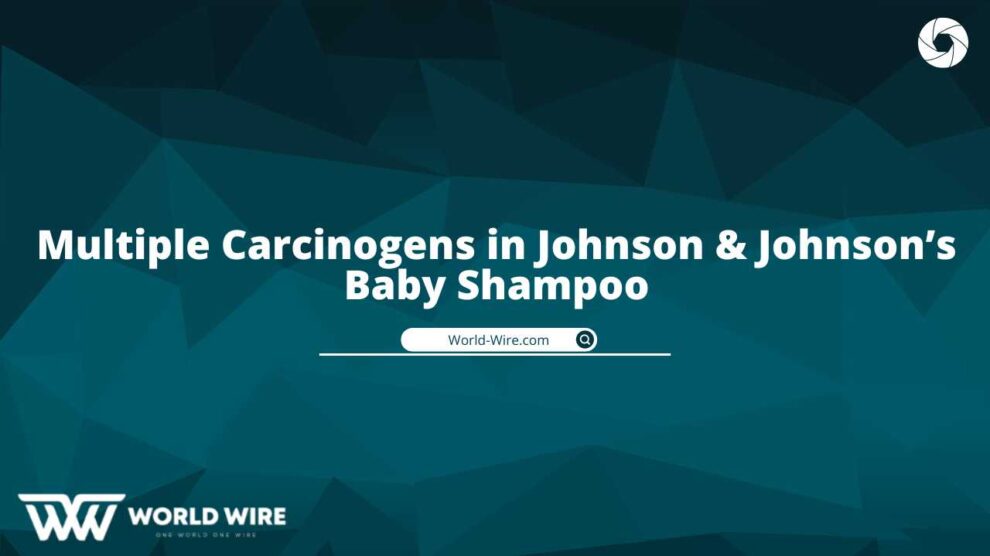The Campaign for Safe Cosmetics received praise from the Cancer Prevention Coalition today for negotiating a deal with Johnson & Johnson on 11/15/11 “for decreasing or progressively phasing out – trace levels of possibly cancer-causing chemicals” from Baby Shampoo, “one of its flagship products.” This deal, however, is exclusive to the American market.
Samuel S. Epstein, M.D., the head of the Cancer Prevention Coalition, claims that dioxane and quaternium 15 are two carcinogenic components in Johnson & Johnson’s Baby Shampoo.
Dioxane is a well-known carcinogen found in alcohol ethoxylates, a class of chemicals that includes laureths, oleths, polyethylene glycol, and polysorbates, according to Dr. Epstein. “Formaldehyde and nitrosamine are two carcinogens that quaternium 15 is a precursor to. Dioxane and quaternium-15 will be “reduced or gradually phased out” in Johnson & Johnson’s U.S. products, but not in their overseas counterparts.
Dr. Epstein considers Johnson & Johnson’s answer to be “in striking and troubling contrast to the quiet of the Food and Drug Administration (FDA),” notwithstanding its limitations.
Dr. Epstein notes that this government agency continues to fail to uphold the clear standards of the 1938 Federal Food, Drug, and Cosmetic Act. In order to avoid any potential health risks linked with the product, the FDA is instructed to mandate that “the label of a cosmetic product should include a warning statement.”
According to Dr. Epstein, the FDA’s regulatory failures include its refusal to reply to the Cancer Prevention Coalition’s 1996 citizen petition “Seeking A Cancer Warning On Cosmetic Products Containing (the carcinogen) Diethanolamine,” which was well-documented.
The Coalition’s 2008 petition, “Seeking A (ovarian) Cancer Warning On Talc Products Used By Premenopausal for Women’s Genital Dusting,” he claims, furthers the FDA’s regulatory failure.
Leading cancer prevention specialists supported both petitions, which asked the FDA to prohibit or postpone clearance of the goods in question because they continue to constitute a “imminent hazard” or at the very least, require that they be labelled with a “Caution” or similar warning. The FDA hasn’t responded yet, though.
Talc, dioxane, formaldehyde, nitrosamine, and ethylene oxide, along with other banned and restricted carcinogenic substances in cosmetics and personal care products, have long been the subject of concerns over their potential to cause cancer, according to Dr. Epstein. They were described in my books “Healthy Beauty” from 2009 and “Unreasonable Risk: How To Avoid Cancer From Cosmetics and Personal Care Products” from 2001.
FDA Commissioner Dr. Margaret Hamburg stated that rather than relying on “high dose animal [carcinogenicity] studies – unchanged for decades,” FDA regulations should be based on “better predictive models – functional genomics, proteomics, and metabolomics.” This was stated in the Science Insider editorial titled “Advancing Regulatory Science” that was published on February 25, 2011.
Dr. Hamburg’s strange rejection of accepted carcinogenicity testing, in Dr. Epstein’s opinion. In addition to the President’s Cancer Panel from April 2010, “their scientific validity has been validated by other Federal regulatory bodies, the National Toxicology Program, and the International Agency for Research on Cancer.”
Additionally, the FDA is tasked with regulating food, pharmaceuticals, and cosmetics based on accepted toxicological and carcinogenicity studies, as stated in the 1938 Federal Food, Drug, and Cosmetic Act. Furthermore, Dr. Epstein notes that the FDA is neither mandated nor capable of creating useless “tests that encompass the molecular roots of illness.”
Senator Edward Kennedy warned that the cosmetics business had “taken a page from the playbook of the tobacco industry by putting profits ahead of public health” at the 1997 Senate Hearings on the FDA Reform Bill.
Dr. Epstein reaffirms, “This warning is still relevant.”
Dr. Samuel S. Epstein is a former president of the Rachel Carson Trust and an emeritus professor of environmental and occupational medicine at the University of Illinois at Chicago School of Public Health. He also serves as the chairman of the Cancer Prevention Coalition. Among his honours are the 2005 Albert Schweitzer Golden Grand Medal for International Contributions to Cancer Prevention and the 1998 Right Livelihood Award. In addition to 20 books on the causes and prevention of cancer, he is the author of more than 270 scientific articles. His works include the Unreasonable Risk Book: How to Avoid Cancer from Cosmetics and Personal Care Products, The Neways Story (2001, Environmental Toxicology), the ground-breaking The Politics of Cancer (1979, Doubleday Books), Healthy Beauty: Your Guide to Ingredients to Avoid and Products You Can Trust (2010), and National Cancer Institute and American Cancer Society (2011, Xlibris Publishing).







Add Comment